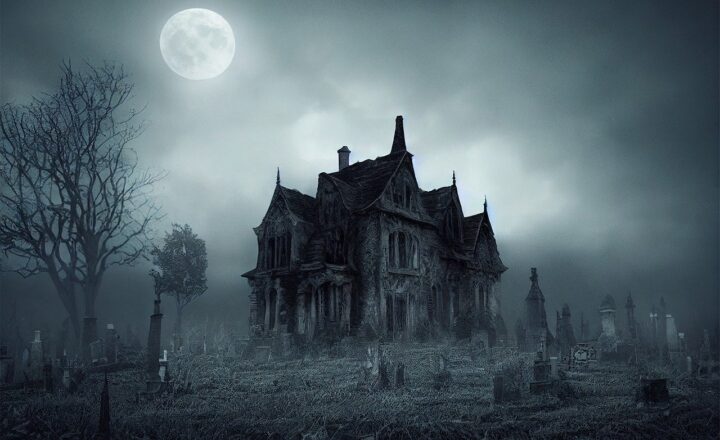How Fantasy Cinema Reflects Our Deepest Hopes and Fears
November 15, 2024

Fantasy cinema has long captivated audiences, transporting them to fantastic realms filled with magic, mythical creatures, and heroic quests. Beyond entertainment, these films serve as mirrors, reflecting our deepest hopes and fears. They allow us to explore complex human emotions and societal issues in a setting unfettered by the limitations of reality. In this article, we will delve into how fantasy movies have become a vessel for the exploration of profound psychological and social themes.
1. The Escape from Reality
One of the primary appeals of fantasy cinema is its ability to offer an escape from the mundane aspects of reality. Audiences often seek solace in these vibrant worlds when faced with personal struggles or societal issues.
– **Hope and Aspiration**: Fantastical narratives often present characters who rise from humble beginnings to achieve greatness. Films like “Harry Potter” showcase unlikely heroes overcoming adversity, reflecting our collective hope that we too can rise above challenges and achieve our dreams.
– **Fear of the Unknown**: Conversely, fantasy films frequently tap into our fears of the unknown. Films like “Pan’s Labyrinth” juxtapose beauty and horror, representing the loss of innocence amidst harsh realities. Through their narratives, these films elevate our hidden anxieties about the world around us.
2. Exploring Identity and Otherness
Fantasy cinema often wrestles with themes of identity, embracing characters who traverse traditional boundaries. This not only reflects our diverse experiences but also challenges societal norms.
– **Embracing Otherness**: Characters that embody the essence of ‘the other’ push viewers to confront their prejudices and assumptions. Consider films like “The Shape of Water,” where the relationship between a woman and a fish creature encourages audiences to reconsider perceptions of love, acceptance, and identity.
– **Duality of Human Nature**: Fantasy narratives frequently explore the duality within us—our capacity for good and evil. The portrayal of characters like Dr. Jekyll and Mr. Hyde illustrates the inner conflict many face, showcasing our fears about uncontrolled impulses and moral choices.
3. The Struggle between Good and Evil
Billeted within the core of many fantasy tales exists the age-old conflict between good and evil, manifesting our instinctual desire for justice and resourceful survival.
– **Moral Lessons**: Films such as “The Lord of the Rings” emphasize the ongoing struggle against darkness, symbolizing our inherent fight against malevolence in the world. Through such narratives, we explore our hopes for peace and harmony, juxtaposed against the fears of chaos and destruction.
– **Sacrifice and Redemption**: The potent themes of sacrifice seen in various fantasy films illuminate the lengths to which individuals will go to protect what they love. These stories express a hope that even in dire circumstances, the human spirit can endure and prevail against adversity.
4. A Reflection of Societal Fears
Beyond individual experiences, fantasy cinema often captures the broader societal fears of its time, reflecting political and cultural anxieties through allegory.
– **Societal Change and Resistance**: Films like “The Hunger Games” reflect the fears surrounding totalitarianism, economic disparity, and social injustice. The dystopian settings serve as entertainment while simultaneously encouraging audiences to critique their own societies.
– **Environmentalism**: The fantasy genre increasingly incorporates themes of environmental stewardship, as seen in “Avatar,” which addresses ecological concerns and the connection between humanity and nature. These narratives highlight our fears about climate change and environmental degradation, inspiring hope for a more sustainable future.
5. The Catharsis of Fantasy
Ultimately, fantasy cinema serves as a form of catharsis. The spectacle, artistry, and intricate storytelling invite viewers to confront their innermost desires and fears within a safe environment.
– **Emotional Journeys**: Viewers often embark on emotional journeys through fantasy films, reflecting their own lives’ struggles, triumphs, and disappointments. The cathartic experience of watching characters navigate life’s complexities parallels viewers’ efforts to make sense of their realities.
– **Universal Themes**: Fantasy narratives resonate by tapping into universal themes of love, courage, loss, and redemption. These stories remind us that even amidst fantastical scenarios, the emotions experienced are deeply human, reinforcing our connection to one another.
Conclusion
Fantasy cinema is not simply an escape; it is a profound exploration of our wildest hopes and darkest fears. Through mythological narratives and larger-than-life characters, these films enable audiences to examine their identities, grapple with societal issues, and ultimately discover personal truths in a fantastical veneer. As we continue to create and consume fantasy films, we engage in a collective dialogue about what it means to be human—our aspirations, anxieties, and imagination. This reflection of the human condition makes fantasy cinema a powerful platform for cultural introspection and emotional connection.








